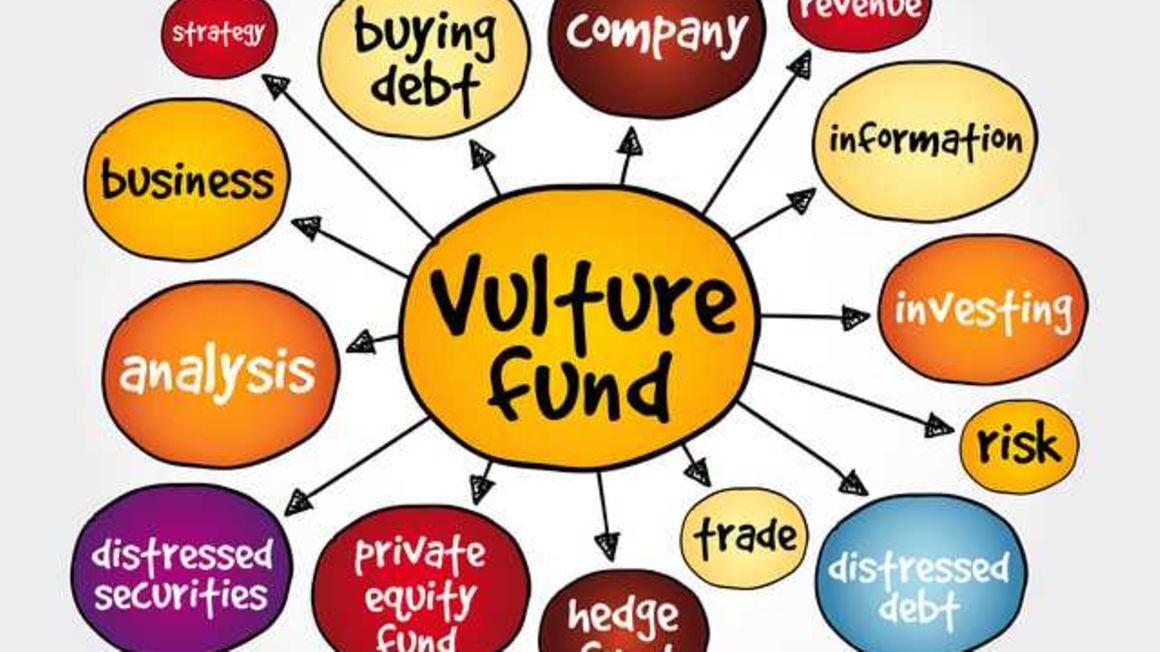
Why Kenya faces the risk of vulture funds taking over debts. PHOTO | POOL
The international rule of thumb to determine whether a country is at risk of default is settled in two ways; if their sovereign bonds are trading at more than 1,000 basis
points above US Treasuries and/or debt-to-GDP ratio is above 60 per cent (applies only to developing countries according to the International Monetary Fund (IMF)), then there’s a high likelihood of default.Presently, Kenya’s debt-to-GDP is above 60 per cent and five of Kenya’s six dollar-denominated Eurobonds are inching closer to the distressed territory.
ALSO READ: How vulture funds are complicating revival
All have opened a 600-point spread gap over 10-year US Treasuries in the past 10 months as investors respond to rising uncertainty. If compared to Germany’s debt – a key risk barometer – the spread is above 850 basis points across.
This may be a simplistic metric, but it is fair to ask; are the widening spread points a sign of deepening investor angst over Kenya’s ability to pay?
Typically, rising yields are a normal part of market action reacting to various data points relating to trades. Nonetheless, when falling bond prices occur parallel to worsening both local and global economic conditions, things may become “slippery”.
If the threat of default rises and bond prices fall to a few cents on the dollar, that may attract an aggressive type of investor known in the industry as vulture funds.
These are predatory funds that purchase distressed debt at deep discounts, refuse to participate in restructuring, and pursue the full value of the debt often at face value plus interest, arrears and penalties through litigation, if necessary.
Subtracting legal costs, often recouped from the sovereign, annualised returns can range between 50 to 333 per cent. Obviously, these mouth-watering returns come at the expense of vulnerable countries which are often forced to participate in long cycles of litigation (a practice referred to as “champerty”) with many lawsuits taking years to “settle.”
Does Kenya run the risk of facing vulture funds? Certainly. If only a portion of current investors is wary of a default happening, they may capitulate to vulture funds.
African countries targeted through this scheme include Tanzania, Uganda, Mozambique, Ethiopia, DRC, Congo, and Angola, to name a few. In fact, some research shows that Africa is the most harassed continent with an average of eight lawsuits a year. Kenya is not an exception.
A recent example is Zambia, which in 2007 was forced to pay Donegal International, a vulture fund, a whopping Sh1.8 billion (down from an Sh6.6 billion demanded) after purchasing the original debt for only Sh400 million from Romania.
This equalled a return of 4.5 times their investment. The International Monetary Fund estimates that in some cases the claims by vulture funds constitute as much as 12 to 13 per cent of a country’s GDP.
READ: Why countries should be wary of vulture fund deals
As rates rise and our economic outlook remains gloomy, we may see vultures circling around. Although a growing consensus has emerged in recent years on the need to curb the activities of vulture funds, I doubt these funds would let up.
As our total sovereign debt inches closer to unsustainable levels and our economics get shaky, Kenyan Eurobonds could just be the most lucrative idea.
The writer is the MD of Canaan Capital




No comments :
Post a Comment